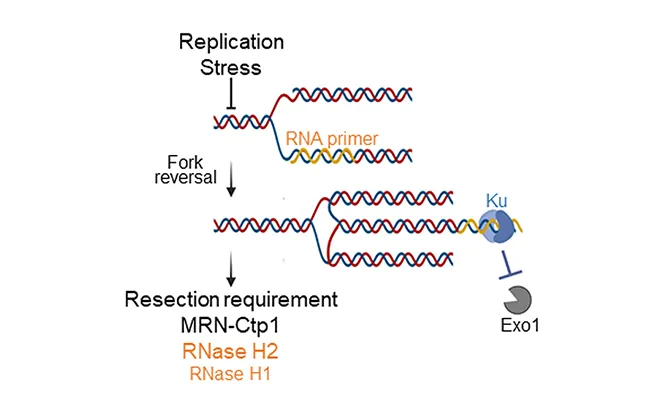- Home >
- Institut Curie News >
- New major players in the protection of DNA replication forks are identified
DNA replication is essential for the cell since it produces a copy of the genetic information to be sent to the daughter cell. Disrupting this process can lead to mutations in the DNA and promote tumor development.
The entire DNA replication machinery is based on a set of enzymes, known as the replisome, and on the formation of a specific structure of the DNA, the replication fork.
When DNA replication is impeded, the replication forks are weakened. Protection systems then come into play to prevent them from being damaged by nucleases, these enzymes that are able to create splits inside the DNA chains.
In an article published on March 2, 2023, in the journal Molecular Cell, the team led by Sarah Lambert, DNA Recombination, Replication and Genome Stability (CNRS UMR3348 / Université Paris-Saclay / Université Paris Sciences et Lettres), in collaboration with researchers from the Institute for Integrative Biology of the Cell (I2BC, Gif-sur-Yvette), revealed a new mechanism that protects the replication forks in the S. pombe yeast.
This mechanism uses RNA primers that initiate synthesis of a new DNA strand, and end-joining factor Ku. In binding these primers, the end-joining factor Ku acts as a barrier against the nucleases and thus helps protect the forks.
In the same study, the researchers also showed that this barrier could be removed thanks to a particular enzyme, RNase H2, which damages the RNA primer and thus stymies the protection of the forks by Ku.
The identification of new elements involved in the cell’s function is vital for improving our understanding of living organisms and ultimately offering new approaches for therapeutic use, in particular against cancer.



